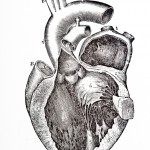Most strokes (AKA cerebrovascular accidents or CVAs) cause multiple symptoms and often develop suddenly, but in some cases you may be having a stroke and not be aware of it. The NIH website on stroke has lots of basic information that may be helpful; the most important fact, I think, is that stroke is a medical emergency. If you believe you're having a CVA, call 911.
The saying is, "Time is brain," in other words the more rapidly you can receive modern emergency stroke therapy, the more brain cells you can potentially save. The Mayo Clinic website has a through discussion of modern emergency therapy for stroke, but urgency is crucial.
We commonly think a person suffering a CVA suddenly loses feeling or muscular control in an arm or leg or one side of their body, but changes in alertness, hearing or taste, clumsiness, confusion, vertigo, loss of balance, personality changes, visual difficulties and a host of other symptoms/signs may also result from a stroke
Recently a new symptom has appeared, not dyslexia, a very broad term defining a person's fluency or comprehension accuracy in being able to read, but dystextia, the loss of ability to send coherent text messages. Two cases of this bizarre presentation of a CVA have been reported in the last four months. JAMA Neurology had a March, 2013 article concerning a previously-health 25-year-old pregnant woman, brought to an emergency room after sending her husband garbled text messages about the baby's due date. In retrospect she had encountered some difficulty in filling out forms during a visit to her Ob-Gyn physician and had also experienced a brief episode of weakness in her right arm and leg.
Her workup revealed other neurological signs and an MRI showed evidence of a stroke. Fortunately she had a rapid improvement and was given low-dose aspirin and another blood thinner for prophylaxis of leg clots (since she had an atrial septal defect (AKA hole in her heart) that could allow a clot to go to the brain. Her fetus suffered no harm.
Another person initially presenting with dystextia, in this case a 40-year-old man, was reported in a New York Times online article recently. By the following day the businessman involved had developed some speech difficulties and a CT scan showed an abnormality in a portion of the brain involving language production. So, in this era, with many people using their cell phones and their digits, but not their voices, to communicate, sudden development of garbled texting may be an early symptom of a stroke. It could be considered a form of aphasia, a condition that robs you of the ability to express yourself to others.
In October, 2010 the World Stroke Organization launched a "1 in 6" campaign" saying that's the proportion of us that will have a stroke in our lifetime. The statistics are grim: every six seconds a stroke kills someone, with estimates of 15 million CVAs a years worldwide resulting in 6 million deaths. In the United States, stroke is one of the leading causes of death with 130,000-140,000 fatalities a year.
Risk factors include high blood pressure, a family history of stroke, an irregular heart rhythm called atrial fibrillation, diabetes, race (blacks are more likely to die of a stroke), high cholesterol and increasing age.
In December, 2012, JAMA published an article titled "Sex, Stroke and Atrial Fibrillation." Before I go into the article itself, let's talk about the malady, AF for short. It's the most common type of abnormal heart rhythm, affecting millions of Americans, according to the NIH's National Heart, Lung, and Blood Institute. AF is caused by conditions (like high blood pressure or coronary artery disease) that damage the conduction system of heart, its equivalent of the electrical wiring system in your house. The result is a heart rhyme that is the antithesis of being regular; it's irregularly irregular with heart beats coming at odd intervals.
During AF, the hearts upper two chambers, the atria, don't pump every bit of their blood to the lower two chambers, the ventricles. When that happens, clots can form and can migrate up to the brain, causing a stroke.
The recent article studied more than 83,000 patients over the age of 65 who were admitted to a hospital in Quebec with a recent diagnosis of AF. Slightly more than half (52.8%) were women and they tended to be somewhat older and had a more frequent history of high blood pressure, diabetes, congestive heart failure (CHF implies the heart doesn't pump as effectively as it should), and prior stroke or TIA (short-term neurologic changes suggestive of a stroke), than the men did.
The women in the study may have been older and had more co-morbid (existing) illnesses than the men, but even after statistically adjusting for these differences in the sexes, women had a higher risk of stroke than men did.
Why this was true is not known, especially since the study group contained women who were post-menopausal and therefore estrogen can't be the culprit. Current therapy with anticoagulant drugs, if such can be given safely, appears to be highly effective in preventing strokes in women with AF. New drugs are beig developed, but many experts in the field think the old ones have a reasonable safety profile and work just fine.
I have not read anything to suggest that most of us should be taking anything prophylactically to prevent stroke. About 85-88% of CVAs are ischemic (too little blood going to a portion of the brain), not hemorrhagic (caused by bleeding). If you've had a stroke already or a TIA, your doctor may recommend blood-thinning medication, but for the vast majority of us, controlling our risk factors, especially our blood pressure, appears to be the safest route to take.
Remember that phrase, "Time is brain." It's been estimated that only 29 to 65% of stroke victims utilize EMS in various communities. Yet for every minute a CVA is untreated you can lose 1.9 million of your brain cells.
So the phone is your best friend if you believe you're having a stroke.



